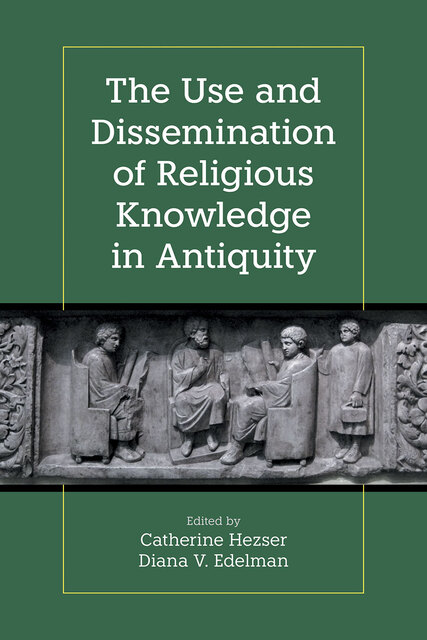LIBRARY COLLECTIONS
Ancient WorldsBiblical Studies
Christianity
Complete Collection
Judaism
Authorized users can access the eBook using institutional credentials or personal password via the Read PDF button.
Ancient Mesopotamian, biblical, rabbinic, and Christian literature was created and transmitted by the intellectual elite and therefore presents their world views and perspectives. This volume investigates for the first time whether and to what extent religious knowledge – e.g., “sacred” narratives, customary practices, legal rules, family traditions, festival observances — was accessible to and known by ordinary people beyond religious functionaries.
Which contexts (e.g., family, synagogue and church, private and public study, communal rituals) enabled the dissemination and acquisition of religious knowledge beyond scholarly circles? In which forms other than written texts was such knowledge available and who (e.g., parents, teachers, scribes, rabbis, priests, monks) mediated it to a public that was largely illiterate? Can we assume that the majority of those who identified themselves as Jewish or Christian would have possessed a “working knowledge” of the respective religious traditions and customary practices? Would that knowledge have differed from one person to another, depending on gender, socio-economic status, religious commitment, and the general circumstances in which one lived?
This book is the first collaborative interdisciplinary study of this important subject area with chapters written by international experts on ancient Mesopotamia, the Hebrew Bible, Qumran literature, rabbinic literature, and early Christianity including apocrypha and monastic traditions.

ISBN (Hardback) 9781781798768
Price (Hardback) £75.00 / $100.00
ISBN (eBook) 9781781798775
Price (eBook) Individual £75.00 / $100.00
Institutional £75.00 / $100.00
Publication 20/08/2021
Pages 298
Size 234 x 156mm
Readership scholars
Illustration 2 black and white figures
We use cookies to analyze our traffic. Please decide if you are willing to accept cookies from our website. You can change this setting anytime in Privacy Settings.